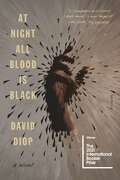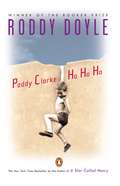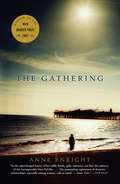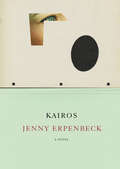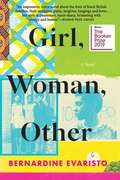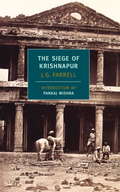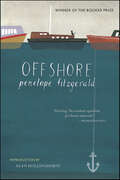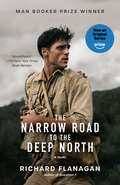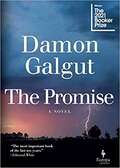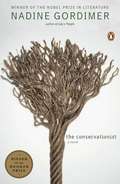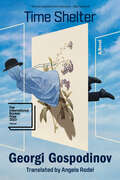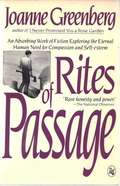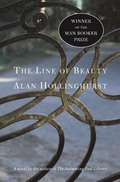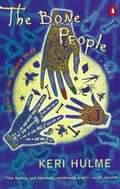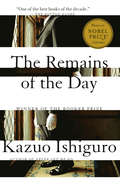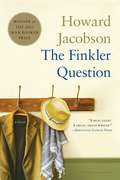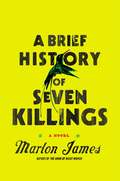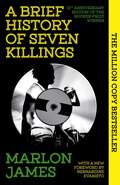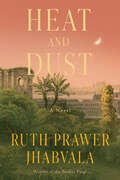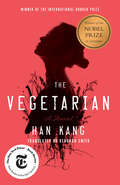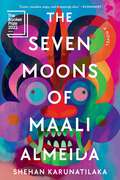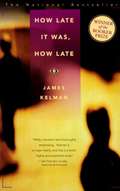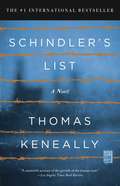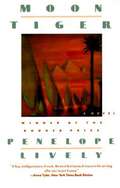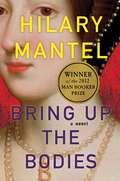Special Collections
Man Booker Prize Award Winners
Description: Bookshare is pleased to offer the following titles awarded the Man Booker Prize for fiction and the Man Booker International Prize for translated works of fiction. #award
- Table View
- List View
At Night All Blood Is Black
by David DiopSelected by students across France to win the Prix Goncourt des Lycéens, David Diop’s English-language, historical fiction debut At Night All Blood is Black is a “powerful, hypnotic, and dark novel” (Livres Hebdo) of terror and transformation in the trenches of the First World War.
Alfa Ndiaye is a Senegalese man who, never before having left his village, finds himself fighting as a so-called “Chocolat” soldier with the French army during World War I. When his friend Mademba Diop, in the same regiment, is seriously injured in battle, Diop begs Alfa to kill him and spare him the pain of a long and agonizing death in No Man’s Land.
Unable to commit this mercy killing, madness creeps into Alfa’s mind as he comes to see this refusal as a cruel moment of cowardice. Anxious to avenge the death of his friend and find forgiveness for himself, he begins a macabre ritual: every night he sneaks across enemy lines to find and murder a blue-eyed German soldier, and every night he returns to base, unharmed, with the German’s severed hand. At first his comrades look at Alfa’s deeds with admiration, but soon rumors begin to circulate that this super soldier isn’t a hero, but a sorcerer, a soul-eater. Plans are hatched to get Alfa away from the front, and to separate him from his growing collection of hands, but how does one reason with a demon, and how far will Alfa go to make amends to his dead friend?
Peppered with bullets and black magic, this remarkable novel fills in a forgotten chapter in the history of World War I. Blending oral storytelling traditions with the gritty, day-to-day, journalistic horror of life in the trenches, David Diop's At Night All Blood is Black is a dazzling tale of a man’s descent into madness.
Paddy Clarke Ha Ha Ha
by Roddy DoyleIn this national bestseller and winner of the Booker Prize, Roddy Doyle, author of the "BarrytownTrilogy," takes us to a new level of emotional richness with the story of ten-year-old Padraic Clarke. Witty and poignant--and adored by critics and readers alike--Paddy Clarke Ha Ha Ha charts the triumphs, indignities, and bewilderment of Paddy as he tries to make sense of his changing world.
Man Booker Prize winner
The Gathering
by Anne EnrightAnne Enright is a dazzling writer of international stature and one of Ireland's most singular voices. Now she delivers The Gathering, a moving, evocative portrait of a large Irish family and a shot of fresh blood into the Irish literary tradition, combining the lyricism of the old with the shock of the new. The nine surviving children of the Hegarty clan are gathering in Dublin for the wake of their wayward brother, Liam, drowned in the sea. His sister, Veronica, collects the body and keeps the dead man company, guarding the secret she shares with him-something that happened in their grandmother's house in the winter of 1968. As Enright traces the line of betrayal and redemption through three generations her distinctive intelligence twists the world a fraction and gives it back to us in a new and unforgettable light. The Gathering is a daring, witty, and insightful family epic, clarified through Anne Enright's unblinking eye. It is a novel about love and disappointment, about how memories warp and secrets fester, and how fate is written in the body, not in the stars.
Man Booker Prize winner
Kairos
by Jenny ErpenbeckJenny Erpenbeck’s much anticipated new novel Kairos is a complicated love story set amidst swirling, cataclysmic events as the GDR collapses and an old world evaporates.
The story of a romance begun in East Berlin at the end of the 1980s: the passionate yet difficult long-running affair of Katharina and Hans hits the rocks as a whole world—the socialist GDR—melts away. As the Times Literary Supplement writes: “The weight of history, the particular experiences of East and West, and the ways in which cultural and subjective memory shape individual identity has always been present in Erpenbeck’s work. She knows that no one is all bad, no state all rotten, and she masterfully captures the existential bewilderment of his period between states and ideologies.”
In the opinion of her superbly gifted translator Michael Hofmann, Kairos is the great post-Unification novel.
Girl, Woman, Other
by Bernardine EvaristoBernardine Evaristo is the winner of the 2019 Booker Prize and the first black woman to receive this highest literary honor in the English language.Girl, Woman, Other is a magnificent portrayal of the intersections of identity and a moving and hopeful story of an interconnected group of Black British women that paints a vivid portrait of the state of contemporary Britain and looks back to the legacy of Britain's colonial history in Africa and the Caribbean.
The twelve central characters of this multi-voiced novel lead vastly different lives: Amma is a newly acclaimed playwright whose work often explores her Black lesbian identity; her old friend Shirley is a teacher, jaded after decades of work in London's funding-deprived schools; Carole, one of Shirley's former students, is a successful investment banker; Carole's mother Bummi works as a cleaner and worries about her daughter's lack of rootedness despite her obvious achievements. From a nonbinary social media influencer to a 93-year-old woman living on a farm in Northern England, these unforgettable characters also intersect in shared aspects of their identities, from age to race to sexuality to class.
Sparklingly witty and filled with emotion, centering voices we often see othered, and written in an innovative fast-moving form that borrows technique from poetry,Girl, Woman, Other is a polyphonic and richly textured social novel that shows a side of Britain we rarely see, one that reminds us of all that connects us to our neighbors, even in times when we are encouraged to be split apart.
The Siege of Krishnapur
by J. G. FarrellIn the Spring of 1857, with India on the brink of a violent and bloody mutiny, Krishnapur is a remote town on the vast North Indian plain. For the British there, life is orderly and genteel. Then the sepoys at the nearest military cantonment rise in revolt and the British community retreats with shock into the Residency. They prepare to fight for their lives with what weapons they can muster. As food and ammunition grow short, the Residency, its defences battered by shot and shell and eroded by the rains, becomes ever more vulnerable. The Siege of Krishnapur is a modern classic of narrative excitement that also digs deep to explore some fundamental questions of civilisation and life.
Winner of the Man Booker Prize
Offshore
by Penelope FitzgeraldThe eccentric residents of a houseboat community along the Thames in London float between loneliness and connection in this Booker Prize–winning novel.On the Battersea Reach of the Thames, a mixed bag of the slightly disreputable, the temporarily lost, and the patently eccentric live on houseboats, rising and falling with the great river’s tides. Belonging to neither land nor sea, they cling to one another in a motley yet kindly society. There is Maurice, by occupation a male prostitute, by happenstance a receiver of stolen goods. And Richard, a buttoned-up ex-navy man whose boat dominates the Reach. Then there is Nenna, a faithful but abandoned wife, the diffident mother of two young girls running wild on the waterfront streets.It is Nenna’s domestic predicament that, as it deepens, draws the relations among this scrubby community together into ever more complex and comic patterns. The result is one of Fitzgerald’s greatest triumphs, a novel the Booker judges deemed “flawless.”This edition includes a new introduction from Alan Hollinghurst.“Dazzling. The novelistic equivalent of a Turner watercolor.” —Washington Post“A small and very bright treasure.” —Kirkus Reviews
The Narrow Road to the Deep North
by Richard FlanaganNATIONAL BESTSELLER • MAN BOOKER PRIZE WINNER • A magisterial novel of love and war that traces the life of one man from World War II to the present.Available now on Prime Video: Justin Kurzel&’s highly anticipated series based on this Booker Prize–winning novel by Richard Flanagan; starring Jacob Elordi, Ciarán Hinds, Odessa Young, Olivia DeJonge and Simon Baker."Magnificent." —The New York Times Book Review "Nothing short of a masterpiece." —Financial TimesAugust, 1943: Australian surgeon Dorrigo Evans is haunted by his affair with his uncle&’s young wife two years earlier. His life, in a brutal Japanese POW camp on the Thai-Burma Death Railway, is a daily struggle to save the men under his command. Until he receives a letter that will change him forever.A savagely beautiful novel about the many forms of good and evil, of truth and transcendence, as one man comes of age, prospers, only to discover all that he has lost.
The Promise
by Damon GalgutA modern family saga written in gorgeous prose by three-time Booker Prize-shortlisted author Damon Galgut.
Haunted by an unmet promise, the Swart family loses touch after the death of their matriarch. Adrift, the lives of the three siblings move separately through the uncharted waters of South Africa; Anton, the golden boy who bitterly resents his life’s unfulfilled potential; Astrid, whose beauty is her power; and the youngest, Amor, whose life is shaped by a nebulous feeling of guilt.
Reunited by four funerals over three decades, the dwindling family reflects the atmosphere of its country—one of resentment, renewal, and, ultimately, hope. The Promise is an epic drama that unfurls against the unrelenting march of national history, sure to please current fans and attract many new ones.
The Conservationist
by Nadine GordimerMehring, a rich, powerful and vital industrialist, has all the privileges and possessions that South Africa has to offer. But his possessions refuse to remain objects: his wife, son, and mistress leave him; his foreman and workers become increasingly indifferent to his stewardship; and even the land rises up, as drought, then flood, destroy his farm. Nadine Gordimer, winner of the 1991 Nobel Prize in Literature, paints a fascinating portrait of a man both reckless and calculating, a "conservationist" left only with the possibility of self-preservation, in this subtle and detailed study of the forces and relationships that seethe in South Africa today.
Joint winner of the Booker Prize.
Time Shelter
by Georgi GospodinovWINNER OF THE 2023 INTERNATIONAL BOOKER PRIZE New Yorker • Best Books of 2022 An award-winning international sensation—with a second-act dystopian twist—Time Shelter is a tour de force set in a world clamoring for the past before it forgets. “At one point they tried to calculate when time began, when exactly the earth had been created,” begins Time Shelter’s enigmatic narrator, who will go unnamed. “In the mid–seventeenth century, the Irish bishop Ussher calculated not only the exact year, but also a starting date: October 22, 4,004 years before Christ.” But for our narrator, time as he knows it begins when he meets Gaustine, a “vagrant in time” who has distanced his life from contemporary reality by reading old news, wearing tattered old clothes, and haunting the lost avenues of the twentieth century. In an apricot-colored building in Zurich, surrounded by curiously planted forget-me-nots, Gaustine has opened the first “clinic for the past,” an institution that offers an inspired treatment for Alzheimer’s sufferers: each floor reproduces a past decade in minute detail, allowing patients to transport themselves back in time to unlock what is left of their fading memories. Serving as Gaustine’s assistant, the narrator is tasked with collecting the flotsam and jetsam of the past, from 1960s furniture and 1940s shirt buttons to nostalgic scents and even wisps of afternoon light. But as the charade becomes more convincing, an increasing number of healthy people seek out the clinic to escape from the dead-end of their daily lives—a development that results in an unexpected conundrum when the past begins to invade the present. Through sharply satirical, labyrinth-like vignettes reminiscent of Italo Calvino and Franz Kafka, the narrator recounts in breathtaking prose just how he became entrenched in a plot to stop time itself. “A trickster at heart, and often very funny” (Garth Greenwell, The New Yorker), prolific Bulgarian author Georgi Gospodinov masterfully stalks the tragedies of the last century, including our own, in what becomes a haunting and eerily prescient novel teeming with ideas. Exquisitely translated by Angela Rodel, Time Shelter is a truly unforgettable classic from “one of Europe’s most fascinating and irreplaceable novelists” (Dave Eggers).
Rites of Passage
by Joanne GreenbergThis is a collection of twelve short stories with varying themes and settings. In the title story, a teenage boy raised by elderly aunts strives to become a man, with disastrous consequences. In "Upon the Waters" an old farmer creates chaos in a social service agency when he attempts to repay society for the help he received during the Great Depression.
Man Booker Prize winner
The Line of Beauty
by Alan HollinghurstIn the summer of 1983, twenty-year-old Nick Guest moves into an attic room in the Notting Hill home of the Feddens: conservative Member of Parliament Gerald, his wealthy wife Rachel, and their two children, Toby-whom Nick had idolized at Oxford-and Catherine, highly critical of her family's assumptions and ambitions.
As the boom years of the eighties unfold, Nick, an innocent in the world of politics and money, finds his life altered by the rising fortunes of this glamorous family. His two vividly contrasting love affairs, one with a young black clerk and one with a Lebanese millionaire, dramatize the dangers and rewards of his own private pursuit of beauty, a pursuit as compelling to Nick as the desire for power and riches among his friends. Richly textured, emotionally charged, disarmingly comic, this U.K. bestseller is a major work by one of our finest writers.
Man Booker Prize winner
The Bone People
by Keri HulmeIn a tower on the New Zealand sea lives Kerewin Holmes, part Maori, part European an artist estranged from her art, a woman in exile from her family. One night her solitude is disrupted by a visitor - a speechless, mercurial boy named Simon, who tries to steal from her and then repays her with his most precious possession. As Kerewin succumbs to Simon's feral charms, she also falls under the spell of his Maori foster father Joe, who rescued the boy from a shipwreck and now treats him with an unsettling mixture of tenderness and brutality. Out of this unorthodox trinity, Hulme has created what is at once a mystery, a love story, and an ambitious exploration of the zone where Maori and European New Zealand meet, clash, and sometimes merge.
A Man Booker Prize winner.
The Remains of the Day
by Kazuo IshiguroBOOKER PRIZE WINNER • From the winner of the Nobel Prize in Literature, here is &“an intricate and dazzling novel&” (The New York Times) about the perfect butler and his fading, insular world in post-World War II England. This is Kazuo Ishiguro's profoundly compelling portrait of a butler named Stevens. Stevens, at the end of three decades of service at Darlington Hall, spending a day on a country drive, embarks as well on a journey through the past in an effort to reassure himself that he has served humanity by serving the "great gentleman," Lord Darlington. But lurking in his memory are doubts about the true nature of Lord Darlington's "greatness," and much graver doubts about the nature of his own life.
The Finkler Question
by Howard JacobsonJulian Treslove, a professionally unspectacular former BBC radio producer, and Sam Finkler, a popular Jewish philosopher, writer, and television personality, are old school friends. Despite a prickly relationship and very different lives, they've never lost touch with each other, or with their former teacher, Libor Sevcik.
Dining together one night at Sevcik's apartment—the two Jewish widowers and the unmarried Gentile, Treslove—the men share a sweetly painful evening, reminiscing on a time before they had loved and lost, before they had prized anything greatly enough to fear the loss of it. But as Treslove makes his way home, he is attacked and mugged outside a violin dealer's window. Treslove is convinced the crime was a misdirected act of anti-Semitism, and in its aftermath, his whole sense of self will ineluctably change.
The Finkler Question is a funny, furious, unflinching novel of friendship and loss, exclusion and belonging, and the wisdom and humanity of maturity.
Winner of the 2010 Man Booker Prize.
A Brief History of Seven Killings
by Marlon JamesIn A Brief History of Seven Killings, Marlon James combines brilliant storytelling with his unrivaled skills of characterization and meticulous eye for detail to forge an enthralling novel of dazzling ambition and scope.
On December 3, 1976, just before the Jamaican general election and two days before Bob Marley was to play the Smile Jamaica Concert to ease political tensions in Kingston, seven gunmen stormed the singer’s house, machine guns blazing. The attack wounded Marley, his wife, and his manager, and injured several others. Little was officially released about the gunmen, but much has been whispered, gossiped and sung about in the streets of West Kingston. Rumors abound regarding the assassins’ fates, and there are suspicions that the attack was politically motivated.
A Brief History of Seven Killings delves deep into that dangerous and unstable time in Jamaica’s history and beyond. James deftly chronicles the lives of a host of unforgettable characters – gunmen, drug dealers, one-night stands, CIA agents, even ghosts – over the course of thirty years as they roam the streets of 1970s Kingston, dominate the crack houses of 1980s New York, and ultimately reemerge into the radically altered Jamaica of the 1990s. Along the way, they learn that evil does indeed cast long shadows, that justice and retribution are inextricably linked, and that no one can truly escape his fate.
Gripping and inventive, shocking and irresistible, A Brief History of Seven Killings is a mesmerizing modern classic of power, mystery, and insight.
Winner of the 2015 Man Booker Prize
A Brief History of Seven Killings
by Marlon JamesA SPECIAL EDITION OF THE 2015 BOOKER PRIZE WINNER, WITH A BRAND-NEW FOREWORD AND A Q&A WITH THE AUTHOR * With a new foreword by Bernardine Evaristo * 'Epic in every sense of the word' New York Times Jamaica, 1976. Seven gunmen storm Bob Marley's house, machine guns blazing. The reggae superstar survives, but the gunmen are never caught. In A Brief History of Seven Killings, Marlon James reimagines the story behind this near-mythical event, chronicling the lives of a host of unforgettable characters from street kids, drug lords and journalists, to prostitutes and secret service agents. Gripping, inventive and ambitious, it is one of the most mesmerising and influential novels of the twenty-first century. 'Showcases the extraordinary capabilities of a writer whose importance can scarcely be questioned' Independent
Heat and Dust
by Ruth Prawer JhabvalaA profound and powerful novel, winner of the Booker PrizeSet in colonial India during the 1920s, Heat and Dust tells the story of Olivia, a beautiful woman suffocated by the propriety and social constraints of her position as the wife of an important English civil servant. Longing for passion and independence, Olivia is drawn into the spell of the Nawab, a minor Indian prince deeply involved in gang raids and criminal plots. She is intrigued by the Nawab's charm and aggressive courtship, and soon begins to spend most of her days in his company. But then she becomes pregnant, and unsure of the child's paternity, she is faced with a wrenching dilemma. Her reaction to the crisis humiliates her husband and outrages the British community, breeding a scandal that lives in collective memory long after her death.
The Vegetarian
by Han KangWINNER OF THE INTERNATIONAL BOOKER PRIZE • &“[Han] Kang viscerally explores the limits of what a human brain and body can endure, and the strange beauty that can be found in even the most extreme forms of renunciation.&”—Entertainment Weekly One of the New York Times&’s 100 Best Books of the 21st Century&“Ferocious.&”—The New York Times Book Review (Ten Best Books of the Year)&“Both terrifying and terrific.&”—Lauren Groff&“Provocative [and] shocking.&”—The Washington PostBefore the nightmares began, Yeong-hye and her husband lived an ordinary, controlled life. But the dreams—invasive images of blood and brutality—torture her, driving Yeong-hye to purge her mind and renounce eating meat altogether. It&’s a small act of independence, but it interrupts her marriage and sets into motion an increasingly grotesque chain of events at home. As her husband, her brother-in-law and sister each fight to reassert their control, Yeong-hye obsessively defends the choice that&’s become sacred to her. Soon their attempts turn desperate, subjecting first her mind, and then her body, to ever more intrusive and perverse violations, sending Yeong-hye spiraling into a dangerous, bizarre estrangement, not only from those closest to her, but also from herself. Celebrated by critics around the world, The Vegetarian is a darkly allegorical, Kafka-esque tale of power, obsession, and one woman&’s struggle to break free from the violence both without and within her. A Best Book of the Year: BuzzFeed, Entertainment Weekly, Wall Street Journal, Time, Elle, The Economist, HuffPost, Slate, Bustle, The St. Louis Dispatch, Electric Literature, Publishers Weekly
The Seven Moons of Maali Almeida
by Shehan KarunatilakaAn Instant National Bestseller • One of the New York Times's 100 Notable Books of 2022 • An NPR Book We Loved in 2022 • Named a Best Fiction Book of 2022 by the Washington Post, Times (UK), Financial Times, and The Guardian. Winner of the 2022 Booker Prize, The Seven Moons of Maali Almeida is a searing satire set amid the mayhem of the Sri Lankan civil war. Colombo, 1990. Maali Almeida—war photographer, gambler, and closet queen—has woken up dead in what seems like a celestial visa office. His dismembered body is sinking in the serene Beira Lake and he has no idea who killed him. In a country where scores are settled by death squads, suicide bombers, and hired goons, the list of suspects is depressingly long, as the ghouls and ghosts with grudges who cluster round can attest. But even in the afterlife, time is running out for Maali. He has seven moons to contact the man and woman he loves most and lead them to the photos that will rock Sri Lanka. Ten years after his prize-winning novel Chinaman established him as one of Sri Lanka’s foremost authors, Shehan Karunatilaka is back with a “thrilling satire” (Economist) and rip-roaring state-of-the-nation epic that offers equal parts mordant wit and disturbing, profound truths.
How Late It Was, How Late
by James KelmanA raw, wry vision of human survival in a bureaucratic world, How Late It Was, How Late opens one Sunday morning in Glasgow, Scotland, as Sammy, an ex-convict with a penchant for shoplifting, awakens in a lane and tries to remember the two-day drinking binge that landed him there. Then, things only get worse. Sammy gets in a fight with some soldiers, lands in jail, and discovers that he is completely blind. His girlfriend disappears, the police probe him endlessly, and his stab at Disability Compensation embroils him in the Kafkaesque red tape of the welfare system.
A masterpiece of black humor, subtle political parody, and Scottish lower-class vernacular.
Man Booker Prize winner
Schindler's List
by Thomas KeneallyA stunning novel based on the true story of how German war profiteer and factory director Oskar Schindler came to save more Jews from the gas chambers than any other single person during World War II. In this milestone of Holocaust literature, Thomas Keneally, author of Daughter of Mars, uses the actual testimony of the Schindlerjuden--Schindler's Jews--to brilliantly portray the courage and cunning of a good man in the midst of unspeakable evil.
Man Booker Prize winner
Moon Tiger
by Penelope LivelyThe last thoughts of a dying writer are captured in this intelligent novel. The moving and poignant story of life as a writer, historian, and mother ends as a saga of unfulfilled love.
Man Booker Prize winner
Bring Up the Bodies
by Hilary MantelThe sequel to Hilary Mantel's 2009 Man Booker Prize winner and New York Times bestseller, Wolf Hall delves into the heart of Tudor history with the downfall of Anne Boleyn.
Though he battled for seven years to marry her, Henry is disenchanted with Anne Boleyn. She has failed to give him a son and her sharp intelligence and audacious will alienate his old friends and the noble families of England. When the discarded Katherine dies in exile from the court, Anne stands starkly exposed, the focus of gossip and malice.
At a word from Henry, Thomas Cromwell is ready to bring her down. Over three terrifying weeks, Anne is ensnared in a web of conspiracy, while the demure Jane Seymour stands waiting her turn for the poisoned wedding ring. But Anne and her powerful family will not yield without a ferocious struggle. Hilary Mantel's Bring Up the Bodies follows the dramatic trial of the queen and her suitors for adultery and treason. To defeat the Boleyns, Cromwell must ally with his natural enemies, the papist aristocracy. What price will he pay for Anne's head?
Man Booker Prize winner
